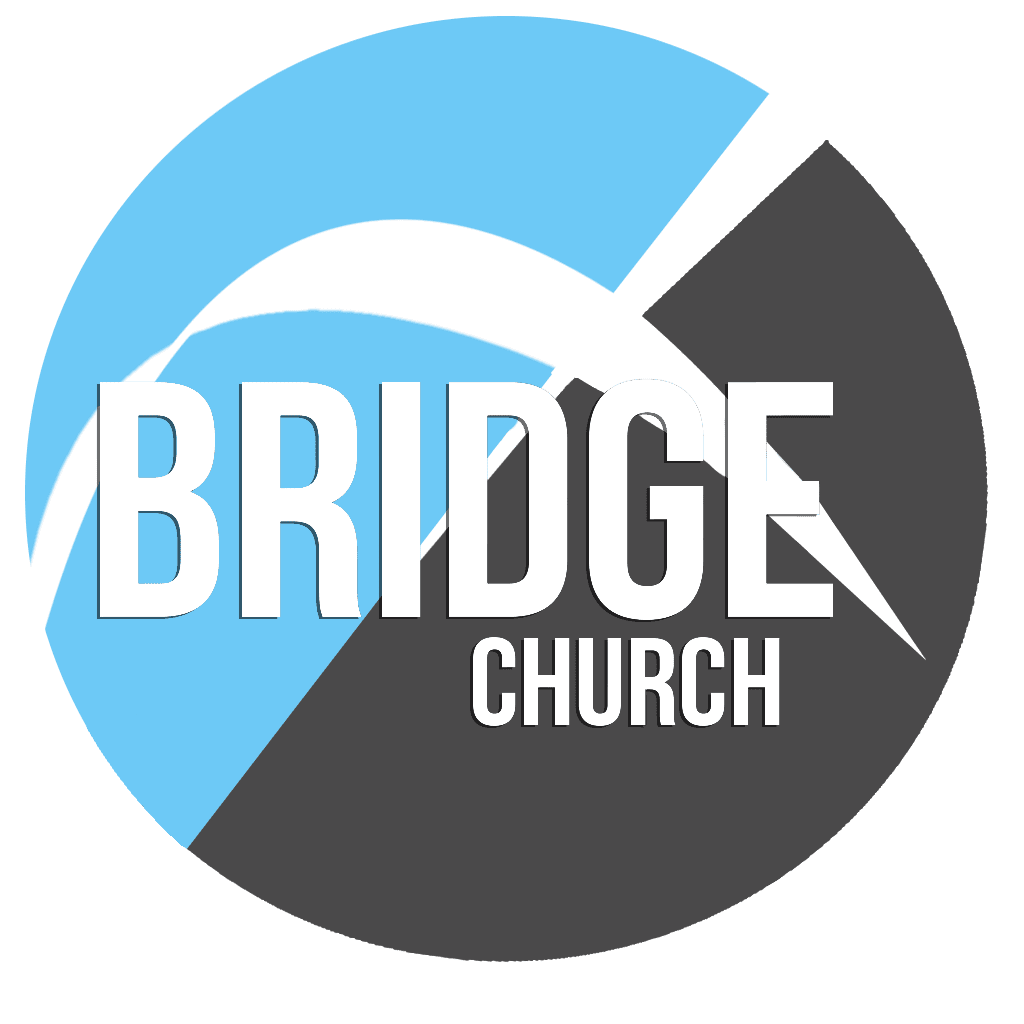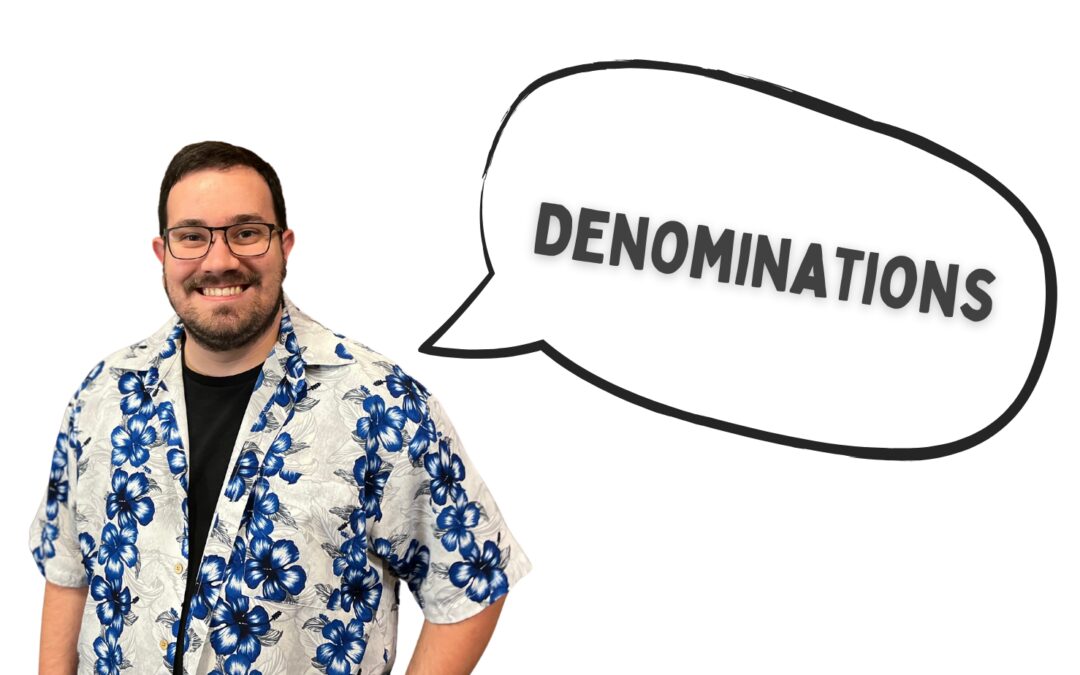Hello & Welcome! Today we’re talking about denominations. If you’re new to the blog allow me to explain, I’m the pocket theologian and here we like to take a theological or philosophical topic and talk about it in as much time as it takes to do it justice. First we’ll discuss history, notable figures, characteristics, then misconceptions, before finally wrapping up with some bigger questions.
History:
So most people will believe that the first denomination to ever exist was Lutheranism, with it’s rather famous breaking away with Catholicism during the Protestant Revolution. But this technically isn’t true, and this is mostly because of the EXTREMELY loose definition that denomination has. So webster’s dictionary defines a denomination as “A religious organization whose congregations are united in their adherence its beliefs and practices” which is amazingly vague and unconvincing in the words of K2-SO. Since this offers the idea that religions are organized, which many aren’t, and the idea that all congregations are united, which in a way they aren’t, but also in another way they aren’t.
For an example there is an episode in the early history of Christianity known as the Great Schism, which to make a VERY long story short basically Christian churches east of Constantinople started to very much disagree with many of the beliefs and by extension the practices of the Churches west of Constantinople notably the church in Rome. Which had a particular bishop, who was becoming increasingly powerful and was calling himself the papa, now known as the pope. Which was another bone of contention between the two branches of Christianity. To the point that eastern church bishops often refused or just didn’t show up to western church councils this came to a head in 476 AD when the last western emperor was deposed and the official seat of power in the Roman Empire was moved to Constantinople, after this various linguistic and cultural barriers began to crop up, these issues piled up before finally both “heads” of each side of Christianity excommunicated the other. With the eastern churches identified themselves as the eastern Orthodox Church and the Holy Roman Catholic church. Both Christian, but NOT the same in belief, and NOT the same in practice. With neither wanting to agree with the other. Not to say the conflict turned violent or vitriolic, both sides to this day still hold moderately good relations, but maintain their differences.
So in technicality this is the first true denomination, but which one? Was Catholicism a compromising and arrogant divider, and Orthodoxy the hero in the east? Or was Orthodoxy the heard hearted and stubborn conservatives. The narrative changes according to what side you hear from; and the “correct” side is honestly irrelevant here.
Now we move on to the Protestant reformation, which everybody knows most of the story about and I don’t plan to go over it here, but I do want to talk about the Counter Reformation. The Catholic response to the protestant reformation, where Catholicism corrected many of the issues that Protestantism raised. But that’s not the NEXT big division we have on the doc, next we have Anglicanism or the Church of England, with it’s own infamous backstory.
So basically Christianity had spread to the island of Britain sometime in the 3rd century, with it becoming well entrenched by the Angelo Saxon period. With Catholicism and Protestantism having various battles and squabbles over the english for centuries. Until 1534, when Henry the 8th, who was a well studied theologian in his own right, and firmly believing Catholic. Wanted to divorce his wife for not bearing him a son, England has a long and sorted history with Christianity that really deserves it’s own episode but for this narrative this is the most important piece of the puzzle. Because the pope refused to grant him this, believing it would set a bad example of kingly governance over the church, and because Catherine of Aragon’s nephew the Holy Roman Emperor would respond to such a declaration, refused. so Henry believing Protestantism to be theologically wrong, declared the pope to be unscriptural and thus created a new church with the king at it’s center. Yet again we have a possible denomination on the scene. Eventually morphing into Anglicanism.
But these didn’t stop, Anglicanism soon created Methodism, which then created Pentecostalism, and Catholicism spawned Protestantism, which then spawned Lutheranism, and Baptists and Anabaptists and so on.
So denominations are still be made every day, what are some of their characteristics? Let’s look…
Characteristics:
A similarity of belief- Most of the time a denomination is created and maintained by congregates similarity of belief and willingness to hold to that belief. Like the idea of Transubstantiation, or church governance, like the idea of bishops putting Catholics and Orthodox on one side, and Protestants on the other. What motivates this belief typically comes from tradition and interpretation, which we’ll go to now.
A similarity in practice- Most denominational links hold true in practice, such as some Protestant denominations still holding to the value of some sacraments but not all of them. For example virtually all of Christianity holds that Baptism is essential to a Christian’s life, but HOW essential is often up to how people interpret scripture. Speaking of:
A similarity in interpretation- Most denominations who share links tend to interpret Scripture in certain set ways. A good example is when Jesus said to Peter, that on this rock I will build my church. Catholics interpret that to mean Peter literally is the rock, while many Protestants interpret Jesus to be speaking metaphorically rather than literally.
Official Recognition- This is what separates a denomination from a cult, acceptance. The idea that while you may be different, your still in the same ball park. Only rarely will another denomination completely disapprove of the entire belief, practice and interpretation of the entire denomination.
Misconceptions:
So unfortunately there are a lot of misconceptions about denominations and I want to rectify some of that today.
That everyone identifies as a denomination. That word is only used in Protestant circles, Anglicanism doesn’t not identify as a denomination of Catholicism, neither does Orthodoxy, or Protestantism, Furthermore a denomination is usually seen as a derivative, like an off shoot or another branch of a previously established belief.
That only Christianity has them- as a matter of fact many other religions also experience a type of “Denomination” or Sect, Islam has Sunni, Khawarij and Shī’ah, each steming from a difference in belief in Islamic governance and structure. Buddhism has Theravada Buddhism, Mahayana Buddhism, and Vajrayana Buddhism these seeming from a difference in practice, or how strict your life is.
Conclusion:
So the big question here is, what makes a denomination legit? Or acceptable? Since that seems to be what separates the cults from the denominations? Is it scripture? it is practice? Is it Hierarchy? Well, honestly, I think God himself decides and I think that’s the end of the story! Go in peace.


Recent Comments